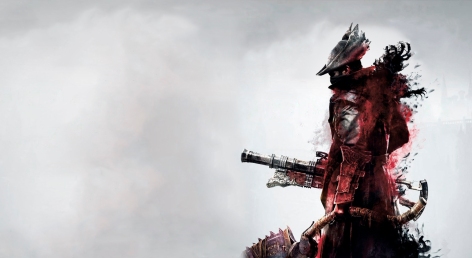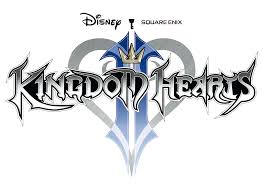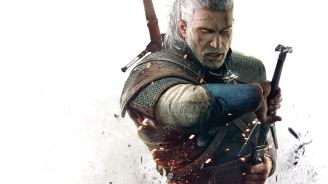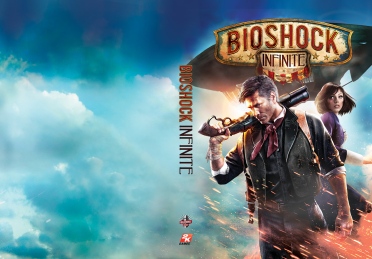
When I was 16, I set off on the journey of a life time. I answered the call to adventure and set out to save a universe in danger of total destruction. My friends stood at my side, defending me and fighting off the monstrous creatures which rose from the ground all around us. With a giant key shaped sword grasped in my hands, I learnt about bravery and courage, friendship and transformation, and when I saw my friends achieve their goals, reunite with their loved ones and live happily ever after (at least until the threequel), I’ll admit it, yeah, I cried.
I’m talking about of course, the 2006 SquareEnix release – Kingdom Hearts 2, a game that has been so engrained in my memory that I have the central character tattooed on my body. That game, although populated with silly, cartoony, Disney Characters had a profound effect on me. It was the first time that I discovered I could have a strong emotional reaction to a game and its story.

Prior to this game, most of what I had played, sure, they had stories, but they didn’t get to me. They were elaborate point scoring systems with maybe a loosely connected narrative. But that’s not the type of game I’m going to be talking about here.
Video games have been given a bad wrap for years. Dismissed as toys or simplistic stories, it has been hard for this form of art to be treated as serious or rise to the level of other kinds of literature. Barry Atkins writes in his book “More than a Game: The Computer Game as Fictional Form” that:
“If this is a form of fiction, then it is still perceived as a form of fiction for children and adolescents, with all the pejorative associations that such a classification carries with it…” (Atkins 2003)
However, while it was once thought that the target audience of video games were young pimply faced boys, it has been revealed in recent times that this is simply not true. Jason Allaire, Ph.D., an associate professor psychology at North Carolina State University and co-director of the Gains Through Gaming Lab writes:
“People of all ages play video games. There is no longer a ‘stereotype game player,’ but instead a game player could be your grandparent, your boss or even your professor.” ((PC GamesN, 2014)
In fact, in the same document, it is recorded that the average age of a Gamer in the U.S. is 31, 52% of them are male, 48% female and surprisingly that
“Women aged 18 or older represent a significantly greater portion of the game-playing population (36%) than boys aged 18 or younger (17%)” ((PC GamesN, 2014)
The type of game I will be talking about here is the kind that pulls on your heart strings, the kind that makes you think, makes you ponder things. The kind of game I am talking about here will force you into uncomfortable places, make you angry, make you sad, and most importantly, make you grow in some way or another.
I want to propose to you today, that these types of games, these gems which are quickly becoming the majority of the gaming industry, should be considered and treated on par with other forms of literary art.
The oxford dictionary definition for a piece of literature is: written work, especially those considered of superior or lasting merit
So what is superior or lasting merit? Arguably, in the realms of literature, superior, lasting merit fits the bill of the kind of game we are talking about here. If we think about famous novels, the works of Ernest Hemingway, of Harper Lee, J D Salinger, or perhaps someone like JRR Tolkien for example, they make you feel, and think and wrestle with the deeper things in life.
Kingdom Hearts 2 and Lord of the Rings have those literary themes of bravery and courage, friendship and transformation. And what is Bioshock Infinite other than a complex analysis of racism, religion, American exceptionalism, war and love just like For Whom the Bell Tolls by Hemingway and To Kill a Mockingbird by Lee?
Although some in the industry rally against this rapidly developing form of storytelling, such as video game theorist Jesper Juul who writes:
“…game and narrative are two separate phenomena that in many cases rule each other out.” (Juul, 2001)

I would argue that you simply need to look at the current popular games to see that games are narrative art forms and SHOULD be considered as such. Off the top of my head, you could look at Playstation 4’s THE WITCHER 3 – adapted from the famous fantasy novels by Andrzej Sapkowsk, or From Software’s Bloodborne – a masterful example of minimalist story telling inspired by the lore and mythos of H P Lovecraft.
These types of games should be considered to be of literary merit as they push you, and make you think. Bioshock Infinite for example pushed some of its audience into such uncomfortable areas of thought that they demanded their money back. In one of the opening sequences of the game, players must be baptized as an external representation of what Joseph Campbell and Christopher Vogler would call “crossing the threshold”. When interviewed, one player explained the emotion provoked in him by stating:
“As baptism of the Holy spirit is at the center of Christianity – of which I am a devout believer – I am basically being forced to make a choice between committing extreme blasphemy by my actions in choosing to accept this ‘choice’ or forced to quit playing the game before it even really starts,” (Malmberg, 2013)
Bioshock Infinite carries with itself a heavy sub-text which pulls it more towards the field of literature. And like literature, it is also open to interpretation, interpretations that could be either positive, or negative like Malmberg’s revulsion at that cinematic. Ken Levine, the creator of Bioshock himself states in an interview regarding this:
“There are many parts of Infinite that are open to interpretation, and the purpose is that you draw your own theories from them. What actually matters is what people think. Why does my interpretation matter more than yours?” (Levine, 2015)

This statement of course echoes French Literary critic Roland Barthes in his 1967 essay “La mort de l’auteur” where he writes:
“The reader is the space on which all the quotations that make up a writing are inscribed without any of them being lost; a text’s unity lies not in its origin but in its destination. Yet this destination cannot any longer be personal: the reader is without history, biography, psychology; he is simply that someone who holds together in a single field all the traces by which the written text is constituted…Classic criticism has never paid any attention to the reader; for it, the writer is the only person in literature…we know that to give writing its future, it is necessary to overthrow the myth: the birth of the reader must be at the cost of the death of the Author.” (Barthes, 1967)
In short, you – the player bring the interpretation to it yourself, just like a reader does with books.
Literature forces you into uncomfortable places, it elicits an emotional response.
So how would acknowledging narrative gaming as being of literary merit affect the world? We can only speculate.
It could be of extreme interest to the world of academia. Imagine what we could glean from studying interactive narratives? What would we find out about story telling? What would we find out about ourselves? Gaming offers a unique version of immersive story. More interactive than both movies and books, games have the ability to intricately connect you with the title character, so that you roleplay as them. You struggle as they struggle, achieve as they achieve and experience emotion as they experience emotion, and when this is executed nicely, the payoff is amazing.
Acceptance of this truth will open the playing field so to speak, there will be a higher demand for better stories – creating fantastic career opportunities for artists and writers such as ourselves, and better games for players, games that allow us to experience the fantastic and wrestle with the deeper themes and questions of life
At the end of the day, it all comes back to story. Once we were Cave men painting on walls, this was the arcade – Pacman, Pinball, Space invaders. But now, like civilized writers, with an increase in technical capabilities, we can present to our audiences fully fledged masterpieces – if we focus on doing so. We can stop painting with red mud on stone walls and start penning the Shakespears, the Tolstoys, the Doestoevskys of our genre. And now, with the emergence of VR headsets, we can quite literally head off on a journey and live vicarious lives in other worlds, learning and growing in ways we wouldn’t have before. Gaming belongs to the storytellers, let’s take it by force.
References:
Atkins, B. (2003). The computer game as a fictional form. In More than a game: The computer game as fictional form (p. 5). Manchester, UK: Manchester University Press.
Barthe, R. (1967). The death of the author. Retrieved from http://www.tbook.constantvzw.org/wp-content/death_authorbarthes.pdf
Juul, J. (n.d.). Playing with literature: Video games as narrative fiction | Dawn Stobbart – Academia.edu. Retrieved from https://www.academia.edu/2149847/Playing_With_Literature_Video_Games_as_Narrative_Fiction
Levine, K. (2016). BioShock Infinite – Wikipedia, the free encyclopedia. Retrieved July 10, 2016, from https://en.wikipedia.org/wiki/BioShock_Infinite
Malmberg, B. (2013, April 16). Valve refunds gamer uncomfortable with forced baptism in Bioshock Infinite. Retrieved from http://www.polygon.com/2013/4/16/4231064/valve-refunds-baptism-bioshock-infinite
PC GamesN. (2014, August 9). ESA finds that more women play games than teenage boys. Retrieved from http://www.pcgamesn.com/esa-finds-more-women-play-games-teenage-boys
This is a wonderfully pieced article. Awesome read. I don’t think people who don’t play games realize the amount of emotion and engrossment that some of these interactive stories can pull at a person’s heart and mind. It’s like living in the story.
I’m actually the Community Content Manager for NowLoading.co, and I would be thrilled if you considered cross posting your stuff to our platform. If you don’t know much about us- we’re the sister site to MoviePilot.com, and push to give awesome writers (like yourself) the exposure they deserve. Feel free to email me! tyler@nowloading.co
LikeLiked by 1 person
Thanks so much for your comment. I would love to cross post! How do we go about it? I’ll flick you an email as well. Thanks!
LikeLiked by 1 person